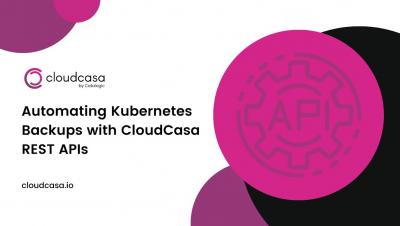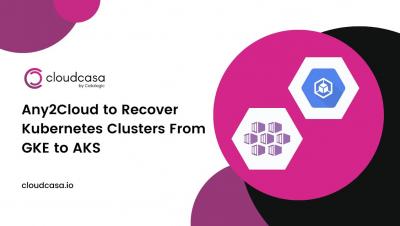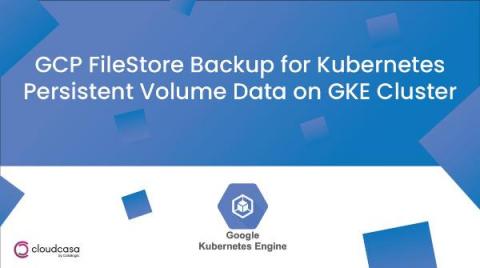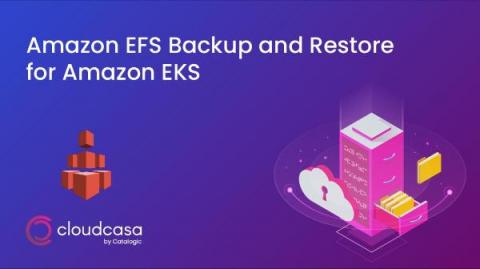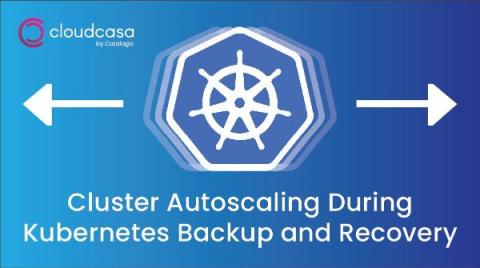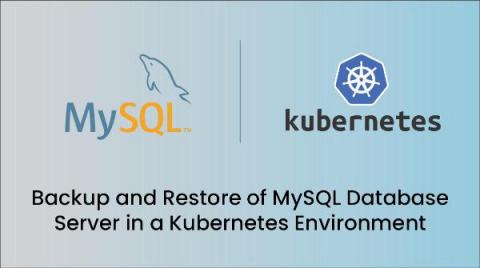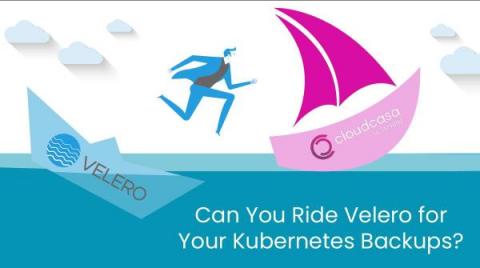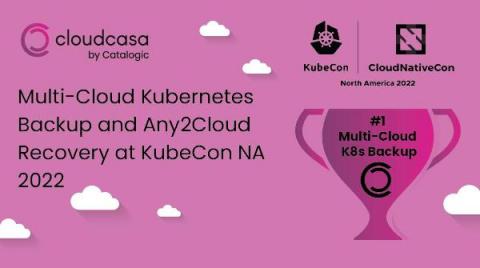Security | Threat Detection | Cyberattacks | DevSecOps | Compliance
CloudCasa
Accelerated Cloud Adoption, Digital Transformation, and More Cyber Resiliency In 2023
In this episode of 2023 Predictions, Sathya Sankaran, General Manager of CloudCasa by Catalogic, speaks with Swapnil Bhartiya on his insights into where he sees the industry heading in 2023. The pandemic resulted in the acceleration of cloud adoption and digital transformation and Sathya expects this momentum to continue in 2023 as well.
Any2Cloud to Recover Kubernetes Clusters from GKE to AKS
GCP FileStore Backup for Kubernetes Persistent Volume Data on GKE Clusters
Google Cloud Provider (GCP) Filestore is a good place to keep lots of rich, unstructured data, such as graphic designs, video editing files, and other media workflows that use files as input and output. Having GCP Filestore backups enables users to protect themselves against the rare case of inaccessibility, accidental changes, ransomware attacks, or other types of disasters.
Amazon EFS Backup and Restore for Amazon EKS
Amazon Elastic File System (EFS) is a simple, scalable and fully managed file storage service to support the storage and throughput needs of your Kubernetes applications. Amazon EFS is designed to be highly available and durable, however your EFS data can still be prone to data loss, data corruption, and have compliance issues. Amazon EFS Backup and Restore of data helps protect against data loss due to hardware failures, accidental deletion, ransomware attacks, or other types of disasters.
Cluster Autoscaling During Kubernetes Backup and Recovery
Companies often see seasonal business spikes with periods of increased on-line demand or activity. To meet the changing application demands, Kubernetes has become the platform of choice to automatically scale web applications and infrastructure up and down. Autoscaling in Kubernetes adjusts the resources that are available to run the application or service, while minimizing the cost of those resources.
Backup and Restore of MySQL Database in a Kubernetes Environment
MySQL database is one of the most popular open-source relational database management systems, and it is a top choice for some of the world’s favorite websites and web applications including YouTube, Twitter, and WordPress. Handling so much data and protecting it is incredibly important to organizations.
How Integrating with GCP Benefits Kubernetes Data Protection and Data Migration for GKE
TFiR has produced its brand-new video show called Let’s See. This is the first time that TFiR has come up with a demo show where we will get to see how some of the technologies and products work.
Can You Ride Velero for Your Kubernetes Backups?
Modern containerized applications are increasingly born in the cloud and the big three managed Kubernetes services – Azure Kubernetes Service (AKS), Amazon Elastic Kubernetes Service (EKS), and Google Kubernetes Engine (GKE) – rule the skies. With more users picking managed services in public cloud as their preferred platform, self-managing a backup infrastructure in the cloud is an antithesis.
Multi-Cloud Kubernetes Backup and Any2Cloud Recovery at KubeCon NA 2022
With over 300 vendors exhibiting at KubeCon + CloudNativeCon North America 2022 (which is the long and official conference name), there was no shortage of early-stage vendors (230 at the silver and startup sponsor level) to visit for the 7000 attendees. Observability and security solutions were popular for the early-stage exhibitors.


